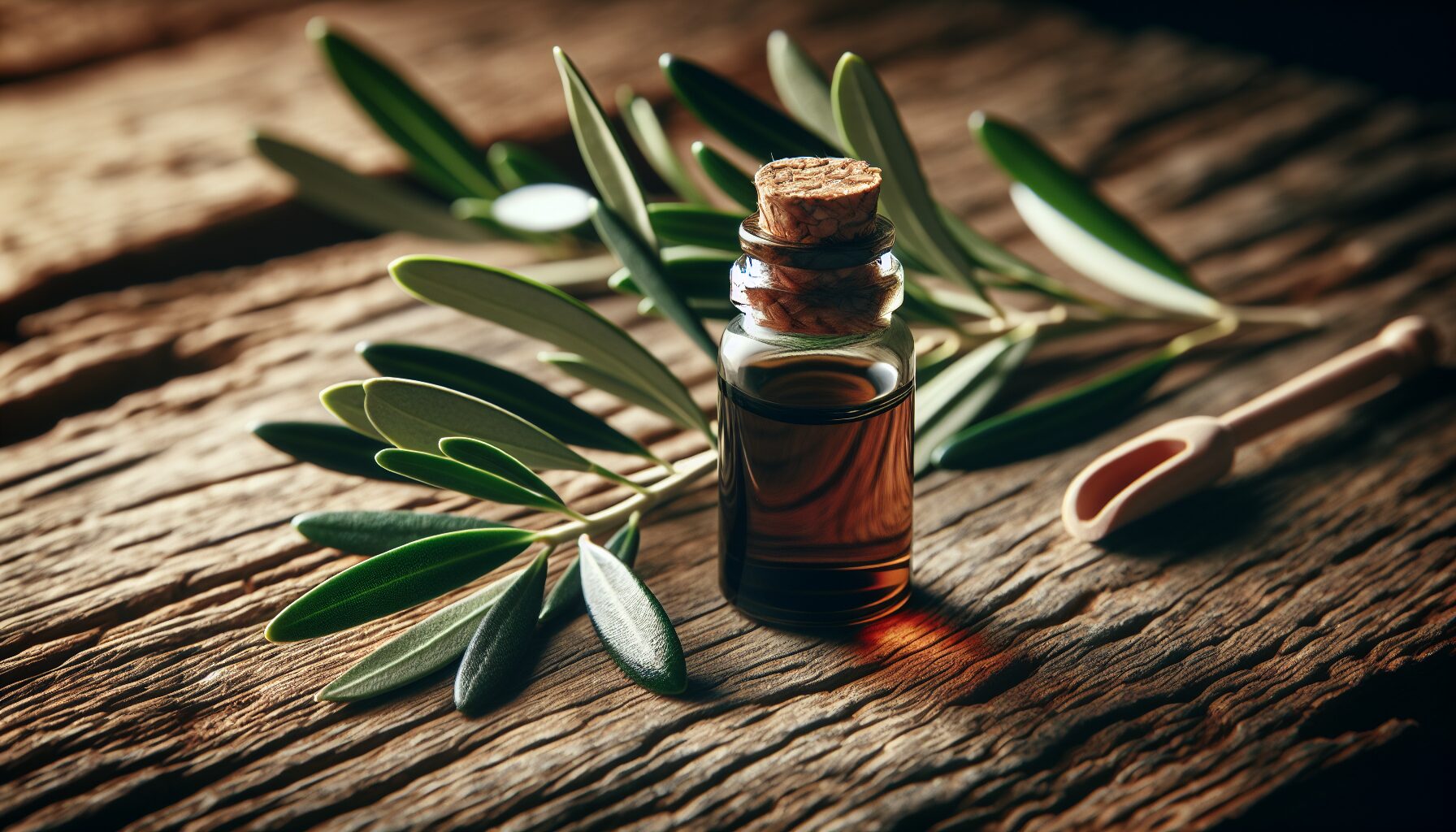
Health Benefits Of Olive Leaf Extract
While most people have heard of olive oil, olive leaf extract carries its own health benefits. Olive leaves are the plant fonds that growth from olive producing trees. These leaves are short, green and grey. Olive leaf extracts are a traditional remedy for colds. They have been used medicinally since the ancient times.
Olive leaves have a reputation for being able to treat fevers. Olive leaves are consumed as a powder, in an extract or in a warmed tea. Compounds from olive leaves seem to be quite bioavailable too, which again adds to their popularity.
They are abundant in a number of active plant compounds including gallic acid, ferulic acid, tyrosol, hydroxytryosol and oleuropein. The polyphenols in olive leaf extracts are present in much higher quantities than in olives. As with many medicinal plants, the health effects from olive leaf extracts result from its unique signature phenolic compounds. Polyphenols naturally have antioxidant and anti-inflammatory properties.
Olive leaf extracts are considered to offer potential health benefits including immune system support against microbes, cardiovascular support and are thought to be able to reduce blood pressure too. These health benefits are mostly thought to be attributed to olive leaf extract phenolics, while very olive leaf polyphenols are regarded as antimicrobials.
Olive leaves also contain many different trace minerals of nutritional importance such as magnesium, phosphorus, calcium and manganese. Olive leaf contains vitamin E which is a strong antioxidant.
Considering the historical relevance of olive leaf extracts, let’s look at the potential health benefits of olive leaf extract in more detail. Here we will summarise how olive leaf extracts may be of benefit to you.

Antimicrobial Properties Of Olive Leaf
Olive leaf extracts are rich in defensive phenolic compounds, which is why olive leaf has a significant effect on bacteria. Phenols have functional alcoholic groups. These have strong effects on microorganisms, who become overwhelmed by their chemical strength in the right amounts. This is how phenolics obtain their antimicrobe power.
Studies have shown that specific olive leaf phenolics, or polyphenols, have a strong active effect against the growth of some very pathogenic microbes. The main active compound in olive leaf extracts is thought to be oleuropein which has been independently studied for its antimicrobial, antiviral, antioxidant and heart protecting abilities.
Olive leaf extracts have effects against Candida fungus strains, E. coli and Staphylococcus aureus. Olive leaf extracts seem to be very strong inhibitors of certain infectious fungi. It is likely that olive leaf extract polyphenols could have antibiofilm activity.
Salmonella is a food-borne microbe that can be quite dangerous too. Olive leaf extracts, containing oleuropein and derivatives, have effects against this microbe too. It is tested against clinical salmonella strains. While many of the antimicrobial effects of olive leaf extracts have been isolated to oleuropein, the polyphenols in olive leaf work better together against microbes. Another impressive quality of olive leaf extracts are their ability to supress viral replication and may have activity against certain respiratory viruses. This is thought to be due to the phenolic content of their leaves.
In addition, oleanolic acid present within olive leaves may have effects against many different viruses including HIV, influenza, herpes and hepatitis forms.

Immune System Boosting Properties Of Olive Leaf Extract
We’ve discussed immunomodulation effects here a lot, where antioxidants protect and encourage more optimal immune system functioning. Because of the rich phenolic content of olive leaves, it is possible that these olive leaf extract is an immunomodulator and one recent study has found evidence for this.
Not only can olive leaf extracts have direct effects on microbes, but they also seem to improve immune killer cell numbers that seek out bad or pathogenic cells in the body. This is another potential way that olive leaf extracts can support the body through infections.
This effect may be because of the effect antioxidants have on conserving other more essential antioxidants, like vitamin C, that is essential for immune system functioning. The high vitamin E content within olive leaf extract may also contribute to immunomodulation.
Anti-Cancer Potential Of Olive Leaf Extracts
As we’ve discussed, olive leaf extracts are abundant in oleuropein. This phenolic compound has strong antioxidant properties and has also been seen to inhibit the growth of some tumours. Some of the growth supressing properties of olive leaf extract on cancer cells are thought to be due to luteolin and its derivatives.
This is another important polyphenol present within olive leaves. It is present in many plants including carrots, cabbages and green peppers. Luteolin has strong anti-inflammatory properties and has been shown to inhibit chromosome alterations. This is how cancers can occur. One example scenario is when high energy molecules attack your DNA and the structure is permanently changed. The effected cells replicate uncontrollably due to the change. Luteolin suppresses this sort of situation. Sometimes these cancer events happen and the body needs to dispose of the malfunctioning cells. This is called apoptosis. Oleuropein found in olive extracts is thought to be able to trigger this within the cancer cells.
For these reasons, olive leaf extract has drawn attention for its ability to suppress cancer growth. Clinical research on the spectrum of bioactive compounds within olive leaf extract showed they could reduce the growth and survival of breast cancer cells. Studies show that compounds within olive leaf extracts have an anti-growth action on some different cancers.

Olive Leaf Extracts And Oxidative Stress
While antioxidants help to prevent cancers, chronic diseases are also associated with the oxidative stresses that cause cancer. Olive leaf extract antioxidants, such as polyphenols, can play an important role in reducing accumulated oxidative stress in the body. They can boost the ability of the body’s natural ability to prevent the risk of these diseases. This can happen when the body is under excessive oxidative strain, which can occur with exercise.
Oleanolic acid is a triterpene within olive leaves that also have antioxidant and anti-inflammatory activity. It is thought to be a very strong antioxidant compound, so may have an ability to prevent diseases relating to oxidative damage.
Its antioxidant strength is so powerful that it may be able to protect nerve cells from oxidative damage, encouraging optimal brain functioning. It is implicated in reducing the progression of some neurodegenerative diseases and improve motor performance. Oleanolic acid may also have protective effects on the liver, encouraging optimal liver functioning. The sheer antioxidant power of olive leaf extracts is one huge potential health benefit from olive leaf extracts.
Heart Protecting Abilities Of Oleuropein
Oleuropein has a substantial free radical reducing effects, protecting specifically against fatty acid oxidation, which gives it an anti-inflammatory ability within the body. This strong anti-inflammatory ability means that oleuropein from olive leaf extracts could have benefits for the circulatory system.
The antioxidant oleuropein can prevent LDL cholesterol from becoming oxidised in the body. This is of significant importance for the prevention of cardiovascular diseases, which in large part, are due to the build up oxidised molecules in the arteries. Under bright light exposure, oleuropein converts to hydroxytryosol.
This compound also has antioxidant effects, which are thought to reduce the risk of cardiovascular diseases. Phenolic oleuropein is also able to lower blood pressure, because of its antioxidant effects, which also reduces risks of cardiovascular diseases. It may have an effect on the NO signalling system, which cause blood vessels open up. This in turn, would reduce blood pressure through blood vessel dilation. These effects of olive leaf extracts would suggest that they may be able to positively influence factors that influence risk of heart disease.
Olive leaves also contain some polyunsaturated fatty acids such as omega 3 and omega 6 fatty acids. You can’t mention olives mentioning omega 3 oils. Healthy polyunsaturated fatty acids, such as ALA found in olive leaves, are also thought to contribute to optimal circulatory health, while they are also a key component of cells. Healthy fatty acids also influence brain health and may be protective against cognitive diseases such as Alzheimer’s. They may be able to improve overall cognitive function.

Summary
Olive leaf extract is an ancient medicinal herb that is a traditional remedy for fevers and some viral infections. The extract is taken from olive tree leaves and can be made into a tea or powder. Active compounds from olive extracts are quite bioavailable too. The leaves of olives contain much stronger quantities of antioxidants than olives.
Most of the potential benefits of olive extracts originate from unique phenols, or polyphenols, present in the olive leaves. These include oleuropein. They have natural anti-inflammatory and antioxidant qualities.
Phenols, such as those found in olive leaf extracts, overwhelm harmful microorganisms with alcoholic groups that breakdown their structure. Olive leaf extracts have potential benefits against some viruses, pathogenic fungi and bacteria such as Salmonella.
Olive leaf may also act as an immune system boosting extract, with boosting effects on immune killer cells that seek out bad or pathogenic cells in the body. The antioxidant content of olive leaves may be responsible for this, through boosting vitamin C levels.
Oleuropein and luteolin, found in large quantities in olive leaves, seem to have anti-tumour properties. Luteolin may also be able to inhibit chromosome alterations, which is an essential protective effect against cancers. Antioxidants within olive leaf extracts are able to reduce oxidative stress and this is a big influencing factor in the development of many chronic diseases.
The antioxidant compounds in olive leaf extracts influence the amount of oxidised cholesterol and blood pressure of the circulatory system. These effects will have a positive influence on cardiovascular health.
Overall, olive leaf extracts seem to encourage some potential positive health effects within the body such as improved cardiovascular health, immunomodulation and anti-microbe activity.
For more interesting articles, see the main articles page below.





